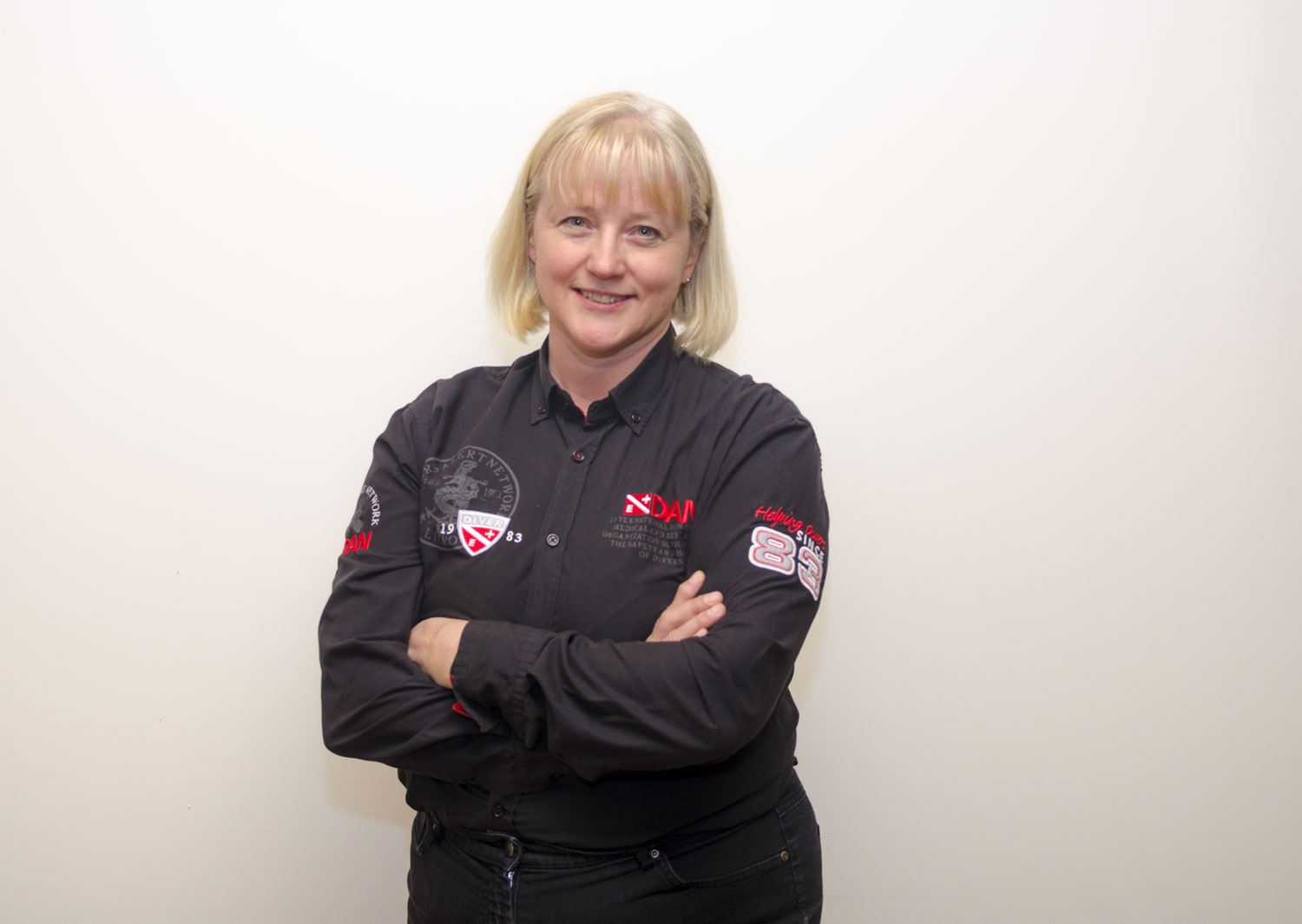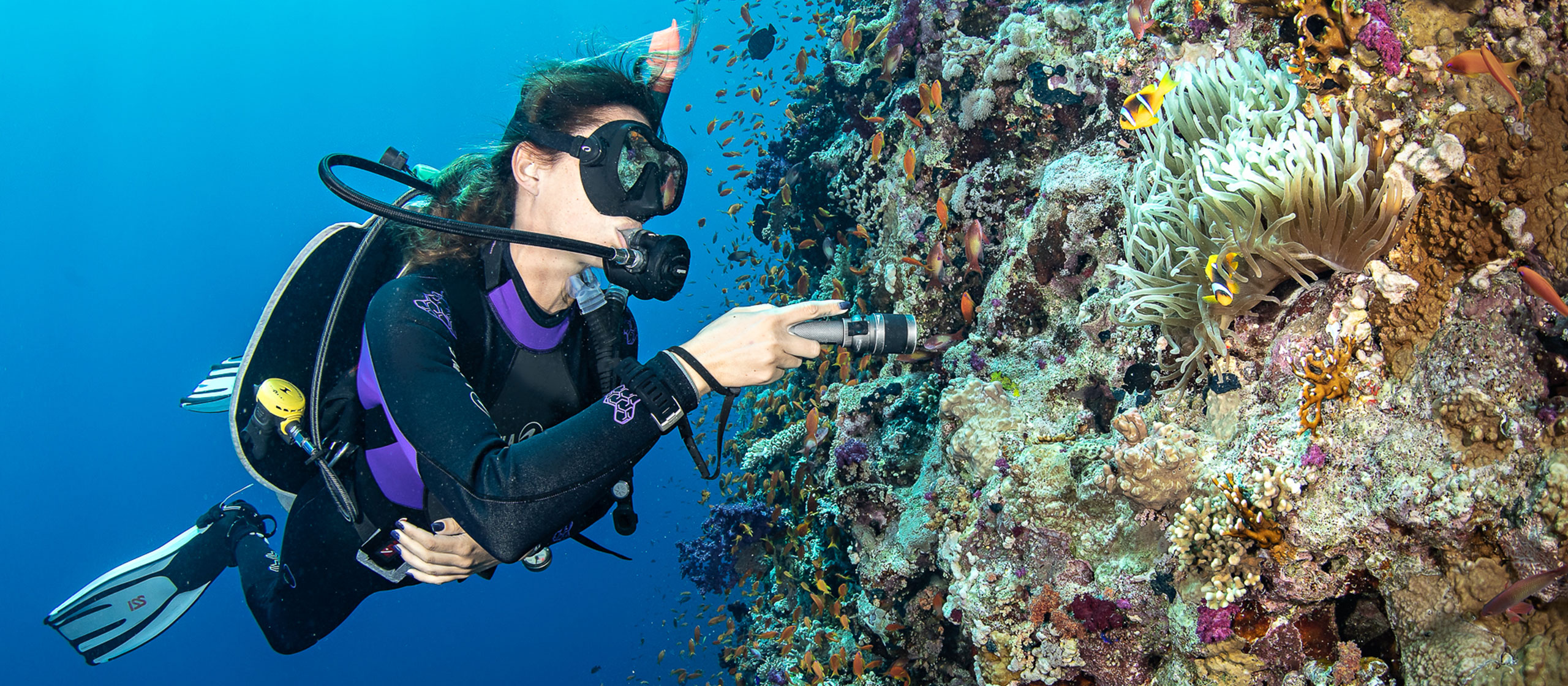Medical Questions
Feeling down – Can I dive?
Over the past year, we have experienced exceptional changes that have affected all situations in life. Out of our control, the changes have hit us, replacing our routines with a degree of uncertainty, loneliness, lack of visibility on the future, concerns for beloved ones, difficulty to cope or anxiety.
An exceptionally stressful everyday life along with the limitations of the ways we relax and our hobbies can lead to depression, especially if there are other uncontrollable situations in daily life. In the context of diving, I wanted to study the topic of depression by interviewing diving medical professionals.
Anne Räisänen-Sokolowski from Finland and Marco Di Tomasso from Belgium are divers, diving instructors and also specialized in providing health diagnosis to divers. They both contribute to the diving community by being part of the international medical & research organisation Divers Alert Network (DAN) Europe.
Depression is common
Depression occurs to 20 percent of people at some point in their lives. The Covid-19 period has increased the amount of doctor’s appointments due to mental reasons, in my home country (Finland) as well as across Europe. Usually, in depression, several typical symptoms occur at the same time for a long time. The symptoms include prolonged depressed mood, exhaustion and fatigue, sensitivity to irritation, loss of function, inability to perform, and sleep disorders such as drowsiness, waking up in the middle of the night without being able to fall back asleep. At the beginning of the illness, the ability to work and function outside the home (work, hobbies etc) may feel unaffected. On the other hand, in everyday home life depression is quickly reflected in the difficulty of taking care of ordinary things such as laundry, and the disregard for clutter.

Marco Di Tomasso is a psychotherapist and first-aid specialist. He currently acts as DAN Europe Area Manager and Regional Training Coordinator for French-speaking countries.
Diving equalizes stress
According to Marco Di Tomasso of DAN Europe, diving has very positive effects on the human mind. Many divers say that diving seems to reduce stress. Being together with friends, calming down, focusing on one’s own breathing and being surrounded by nature are just a few examples of the therapeutic aspects of diving. “According to the World Health Organization, mental health is a physical, social and mental combination” Di Tomasso describes, and continues: “diving combines all of these. It’s a very social sport where the diving community and friends can be almost like your own family. Weekends are spent together and we also travel together. The feeling of togetherness boosts the production of oxytocin, serotonin and dopamine, hormones that promote pleasure and mental health. ”
Dr. Anne Räisänen-Sokolowski adds that "Exercise and physical activity also support good mental fitness and rehabilitation."
The interview confirms my perception that it is worth taking part in diving events as a surface assistant or just for the joy of being together with friends, even if you are not diving yourself.
When can I dive then?
In diving, safety is maximised with – among other things – training, safety instructions and redundancy in equipment. What about a diver’s well-being, what does it mean for safety?
An important question for professionals is whether mental illness interferes with diving. Both Di Tomasso and Räisänen-Sokolowski state that there is no general answer to this. The answer depends on the disease, the treatment, and the patient's response to the treatment. However, Räisänen-Sokolowski reminds: “What used to be an absolute no, is possible today with the development of treatments and medicines. However, certain symptoms and medications, as well as untreated mental illness, are not safe for the diver and it is therefore advisable to consult a doctor, even with mild symptoms.” The duration and treatability of depression are improved when help is received early. “The new diver medical questionnaire published by DMSC (Diver Medical Screen Committee) in 2020 comes with instructions for the general doctor to perform a medical examination of the diver, and the instructions can be taken to the medical appointment,” she recalls.

Anne Räisänen-Sokolowski is a DAN Europe Diving Medical Officer, and she replies to DAN medical hotline calls and emails in Finnish. She is a doctor specialized in diving medicine.
Anne Räisänen-Sokolowski states that almost all drugs prescribed for the treatment of mental health affect the central nervous system. They have not been tested outside of normobaric conditions, so the exact interaction between drug use and exposure to depth is not fully known. After a certain partial pressure, all gases also have effects on the central nervous system. “Some medications can be tiring, and combined with nitrogen narcosis, it is not a good combination for a diver. When assessing if a person is fit for diving, the patient's typical dive profile also matters. The stakes are different whether you are diving on a holiday trip to 20 meters in tropical waters with a light tank on your back, or on a kilometer-long technical cave dive, implying use of heavy equipment or covering the role of a diving instructor.”
Take an easy start
Both health professionals have an important message for divers. Many have had a long break from diving because of the restrictions, so the activity should be started calmly. According to Di Tomasso, DAN Europe statistics show that several accidents have been caused by the diver's uncertainty about their own diving condition. “Now it is really important to listen to yourself”, they both affirm, as if it came from one mouth. Räisänen-Sokolowski continues: “One should be able to honestly answer to oneself: do I really want to go into the water right now? When making a decision, one should not succumb to the pressure of having promised a friend to dive while perhaps already having driven a long distance to the dive site. Sometimes, children have been ill, work is heavy, it feels good to be out of the house, but one might be too tired and a little scared to go in the water. Then change your dive plans into something easier or don’t go at all” reminds Räisänen-Sokolowski.
When it comes to instructors and other people with resposiblilities, both interviewees stress the importance for them to remove all sort of peer pressure and rush. ”If a diver’s physical condition is poor, their fear of not managing underwater can be exacerbated. In extereme cases, this can lead to a panic attack.” reminds Räisänen-Sokolowski. Those in charge should be sensitive to the signs of a stressed diver and create a relaxed athmosphere for everyone to get into the water. Di Tomasso points out that: ”A good way to restore calm is to talk through and visualise the dive ahead. The buddy check is also a calming experience. Have a moment to focus on calming down and profound breathing before getting into water.”
Finally, Di Tomasso suggests: ”Enjoy a casual dive while paying special attention to the smallest details and the good around us. Enjoyable experiences strengthen the body's production of pleasure hormones and turn down the production of stress hormones, thus promoting well-being.”
About Emma Barrow
The very first time I backrolled into water with scuba gear, I knew I was sold! It was in 2015 in the Andaman Sea, Thailand. Since then, I have found my true paradise in the cold and murky waters of Finland. Wreck and cave diving are what works wonders for my soul, and I also enjoy shallow bio dives. I do approximately 100 dives per year, mostly in Finland. As a volunteer, I regularly write articles for the magazine published by the Finnish Diver's Federation.
To follow my journey, you can reach me on Instagram and Facebook.


